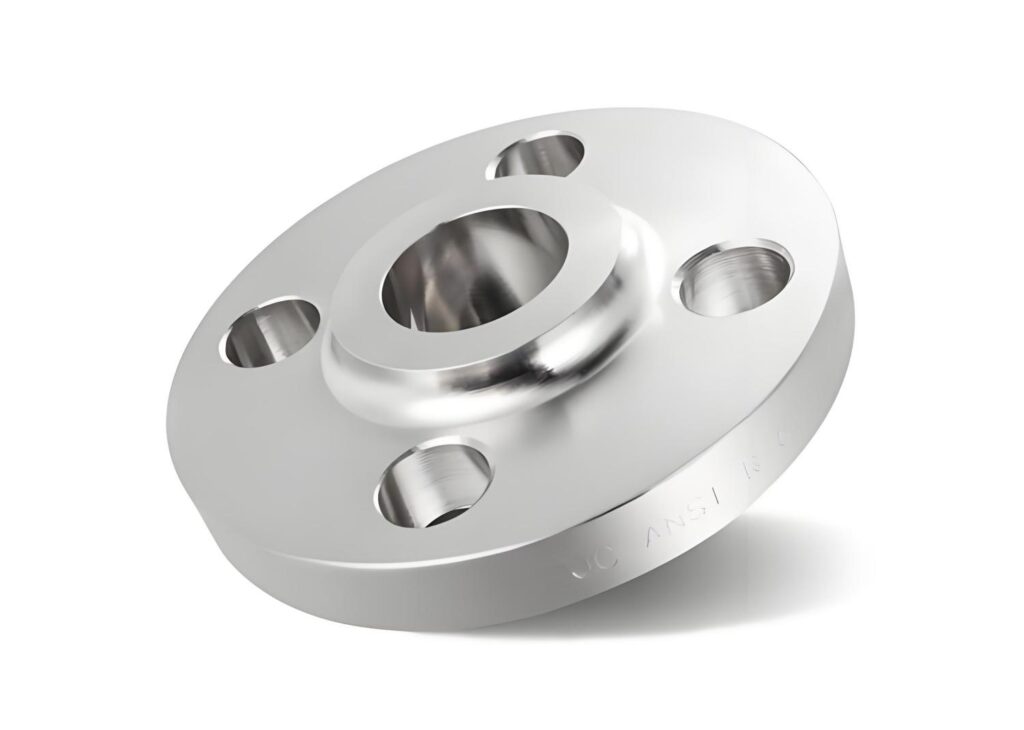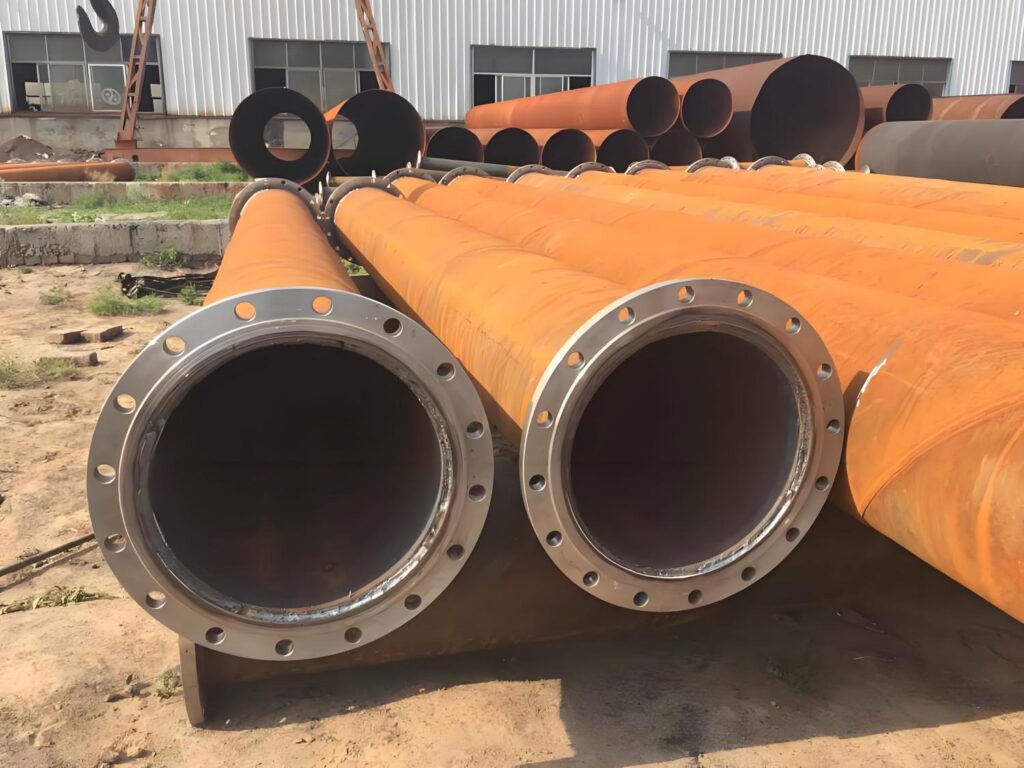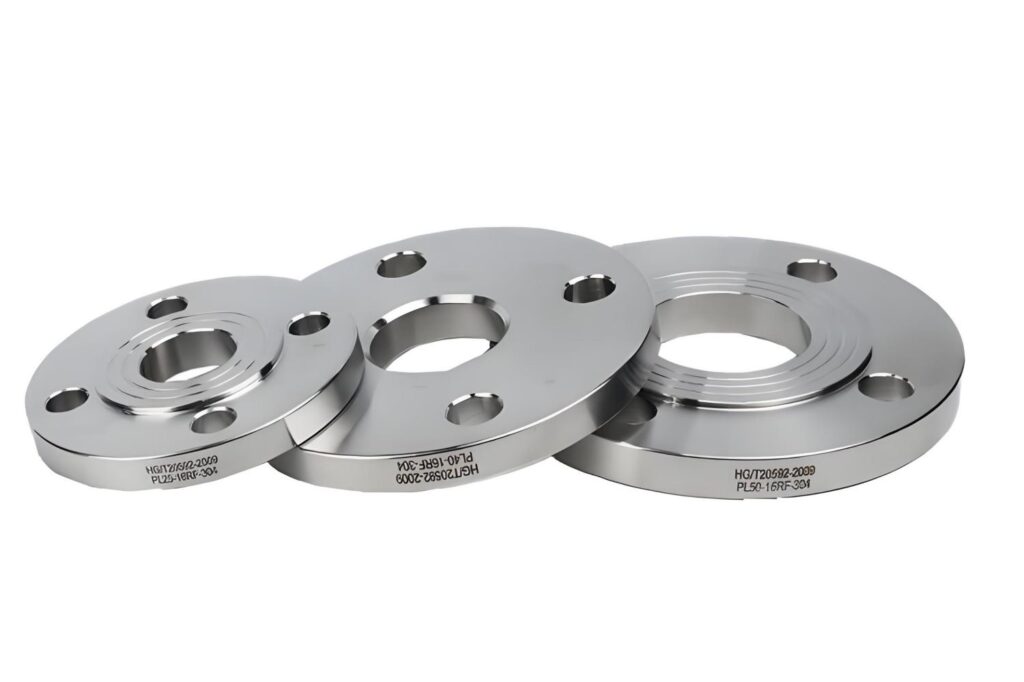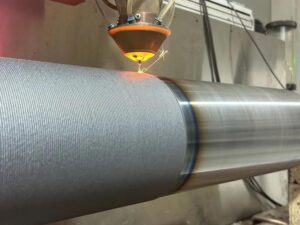What is a Slip On Flange?
A slip on flange, commonly called an SO flange, is a piping component that slides over the end of a pipe and is welded in place to form a secure connection. Its slightly larger inner diameter allows it to fit snugly over the pipe, making installation a breeze compared to more complex flange types. Once positioned, it’s welded both inside and outside for durability, creating a robust seal for various systems.
These flanges are prized for their simplicity. They come with either a flat face for low-pressure setups or a raised face for better sealing under moderate pressure. Bolted to a matching flange or fitting, they ensure a tight, leak-free connection. For industries like machining, where precision and efficiency matter, slip on flanges strike a balance between performance and affordability.
What Are the Types of Slip On Flanges?
Slip on flanges aren’t one-size-fits-all. They come in several variations, each suited to specific needs. Here’s a look at the main types:
Standard Slip On Flanges
These are the workhorses of the flange family, built to meet standards like ASME B16.5 or EN 1092-1. Made from materials like carbon steel or stainless steel, they’re ideal for low- to medium-pressure systems in industries like oil and gas or manufacturing.
Raised Face Slip On Flanges

Featuring a raised area around the bore, these flanges improve sealing when paired with a gasket. They’re a go-to for applications needing a reliable seal under moderate pressure, such as chemical processing.
Flat Face Slip On Flanges
With a smooth surface, flat face slip on flanges are perfect for low-pressure systems or when connecting to delicate materials like cast iron. They reduce stress on the mating surface, preventing cracks or damage.
Hubbed Slip On Flanges
These include an extended hub for extra strength, making them suitable for systems requiring additional support. While slightly pricier, they’re a smart choice for demanding environments.
Choosing the right type depends on your project’s pressure, temperature, and material requirements, ensuring optimal performance.
Applications of Slip On Flanges

Slip on flanges shine in their versatility, supporting critical operations across diverse sectors. Their ease of use and adaptability make them indispensable in the following areas:
Oil and Gas Pipelines
From offshore rigs to refineries, slip on flanges connect pipes carrying crude oil, natural gas, or refined products. Their ability to handle moderate pressures makes them a staple in this high-stakes industry.
Water Treatment Systems
Municipal and industrial water treatment plants rely on slip on flanges for piping networks that manage filtration, distribution, and wastewater. Corrosion-resistant options, like stainless steel, ensure longevity in wet environments.
Chemical Processing Plants
Handling corrosive or hazardous materials requires durable components. Slip on flanges, available in alloys or stainless steel, provide reliable connections in chemical plants.
HVAC and Plumbing
In heating, ventilation, and air conditioning systems, slip on flanges simplify ductwork and piping connections. Their quick installation minimizes downtime during maintenance.
Power Generation
Power plants, whether fossil fuel-based or renewable, use slip on flanges in cooling systems, steam lines, and other networks. Their reliability supports uninterrupted energy production.
This wide range of applications highlights why slip on flanges are a trusted choice for engineers globally.
Advantages and Limitations of Slip On Flanges
Like any component, slip on flanges have strengths and weaknesses. Weighing these helps determine if they’re the right fit for your project.
Advantages of Slip On Flanges
- Budget-Friendly: Their simple design uses less material, making them more affordable than weld neck or socket weld flanges.
- Easy Installation: Sliding over the pipe simplifies alignment, cutting down on labor time and costs.
- Versatile Options: Available in various materials and sizes, they adapt to diverse applications, from small plumbing to large industrial systems.
- Space-Saving: Their compact design suits tight spaces where larger flanges might not fit.
Limitations of Slip On Flanges
- Moderate Strength: They’re less robust than weld neck flanges, making them unsuitable for high-pressure or high-temperature systems.
- Not for Fatigue-Prone Systems: Frequent thermal or mechanical stress can weaken their welds over time.
- Welding Needs: Requiring both internal and external welds, they may increase labor costs in complex setups.
Understanding these trade-offs ensures you pick the best flange for your specific needs.
How to Select the Appropriate Slip On Flange?
Choosing the right slip on flange involves several considerations to ensure performance and longevity. Here are key factors to keep in mind:
Material Compatibility
Match the flange material to the pipe and the substances it will carry. For example, stainless steel is ideal for corrosive environments, while carbon steel suits general-purpose applications.
Pressure and Temperature Ratings
Check the system’s operating conditions. Slip on flanges are best for low- to medium-pressure systems. For high-pressure setups, consider alternatives like weld neck flanges.
Size and Dimensions
Ensure the flange’s inner diameter matches the pipe’s outer diameter. Refer to standards like ASME B16.5 for precise sizing to avoid mismatches.
Industry Standards
Verify that the flange meets relevant standards, such as ASME, ANSI, or DIN, to ensure compliance with safety and performance regulations.
Gasket and Sealing Requirements
Choose between flat face or raised face flanges based on sealing needs. Raised face flanges work well with gaskets for tighter seals, while flat face options suit delicate connections.
By carefully evaluating these factors, you can select a slip on flange that meets your project’s demands while staying within budget.
Precionn: Your Trusted Slip On Flange Supplier
Precionn specializes in high-quality machining solutions and is a trusted supplier of Slip On Flanges for international clients. With years of experience in the machining industry, Precionn ensures precision, durability, and compliance with global standards. Their team provides expert guidance in selecting the right flange type, material, and size for any industrial application, making them a reliable partner for your projects.
Whether it is for oil and gas pipelines, chemical plants, or water treatment systems, Precionn delivers flanges that meet both performance and safety requirements, ensuring smooth and efficient operations.




